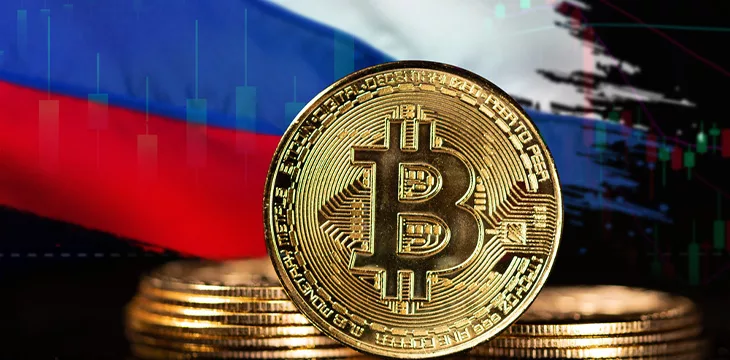|
Getting your Trinity Audio player ready...
|
Russia has formally signed a law permitting the use of digital financial assets (DFAs) for cross-border payments amid attempts to avoid Western-backed sanctions.
Russia’s President Vladimir Putin appended his signature to the bill that allows digital currency use for foreign trade payments, ending months of legislative back-and-forth. A deep dive into the provisions of the newly minted law reveals that only tokenized assets issued by the Bank of Russia are authorized to be deployed in foreign trade payments.
Domestic use within Russia’s borders is expressly prohibited by the new rulebook despite the legislative approval given to DFAs. Russia’s authorities are keen to prevent digital currencies from undermining the influence of the ruble in domestic transactions but still see DFAs as a way to sidestep economic sanctions.
The new law has several far-reaching consequences for Russia’s anti-money laundering (AML) laws, dispensing the requirement for full disclosure of parties to a DFA transaction.
“Due to existing sanctions risks, the Federal Law excludes the requirement to provide information about the beneficial owner of the person who issued digital financial assets,” read a statement by Russia’s lawmaking body.
Another highlight of the law is the transfer of non-state pensions and insurance contracts through digital platforms. The law grants powers to the central bank to reel out additional conditions for the use of DFAs for settlements, but it remains unlikely that the central bank will expand conditions for domestic use.
“The use of digital assets to service foreign trade operations will help Russian importers and exporters work more actively with friendly countries,” said Anatoly Aksakov, head of the Duma Financial Committee in February. “To a certain extent, we will be able to solve the problem of sanctions pressure on our country.”
For all its perks and benefits, pundits are predicting a bumpy ride toward implementation with onboarding international partners to DFA platforms, which is considered an uphill climb. Furthermore, a relaxation of AML rules could have a blowback effect as bad actors could use the legal loophole to perpetrate financial crimes.
Still steamrolling with other alternatives
Amid plans to deploy DFAs to circumnavigate sanctions, Russia still has a few aces up its sleeve, including a digital ruble with cross-border functionalities.
The banking regulator has been exploring retail central bank digital currencies (CBDCs) with international payment capabilities, inking deals with China and other allies. At one point, Russia turned its sights to stablecoins, but an inability to iron out finer details put a dent in the plans to use them for international settlement.
Presently, Russia is eyeing a blockchain-based payment system for BRICS member states, relying on CBDCs to settle transactions. The economic coalition is exploring a raft of options to stifle the U.S. dollar’s dominance in international trade while mitigating the effect of economic sanctions.
Watch: Reimagining how remittances work with micropayments

 02-21-2026
02-21-2026 




